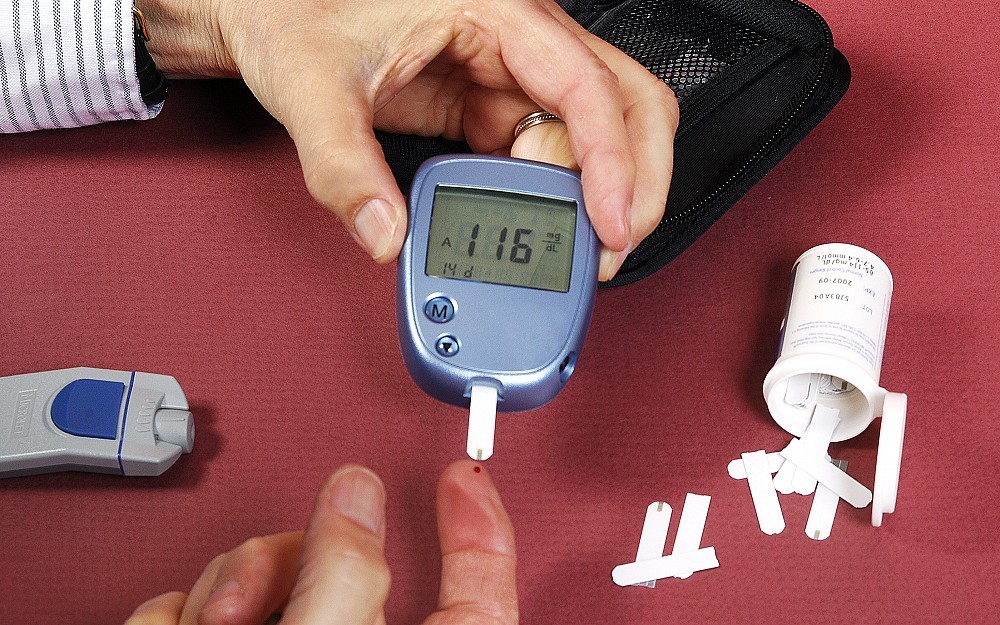
Cincinnati Part of Long-Term Study of Diabetes Drug Efficacy
CINCINNATIResearchers at the University of Cincinnati (UC) and the Cincinnati Department of Veterans Affairs (VA) Medical Center are leading the local arm of a national, long-term study comparing the benefits and risks of four widely used diabetes drugs in combination with metformin, the most common first-line medication for treating type 2 diabetes early in its course.
Recruitment for this National Institutes of Health-sponsored study called Glycemia Reduction Approaches in Diabetes: A Comparative Effectiveness Study (GRADE Study) begins this month.
If metformin is not enough to help manage type 2 diabetes, a persons doctor may add one of several other drugs to lower glucose (blood sugar). But while short-term studies have shown the efficacy of different drugs when used with metformin, there have been no long-term studies of which combination works best and has fewer side effects.
"Type 2 diabetes progresses slowly, over a long period of time, said Barbara Linder, MD, PhD, the GRADE project officer at the National Institute of Diabetes and Digestive and Kidney Diseases, part of the National Institutes of Health. "This study will help us understand how different combinations of medications affect the disease over time, and ultimately help physicians make better choices for their patients long-term care.
The study will compare drug effects on glucose levels, adverse effects, diabetes complications and quality of life over an average of nearly five years.
GRADE aims to enroll about 5,000 patients. Investigators at UC and the Cincinnati VA Medical Center, along with 36 other study sites, are seeking people diagnosed with type 2 diabetes within the last five years. They may be on metformin, but not on any other diabetes medication. During the study, all participants will take metformin, along with a second medication randomly assigned from among four classes of medications, all approved for use with metformin by the U.S. Food and Drug Administration.
Three of the classes of medications increase insulin levels. They are: sulfonylurea, which increases insulin levels directly; DPP-4 inhibitor, which indirectly increases insulin levels by increasing the effect of a naturally occurring intestinal hormone; and GLP-1 agonist, which increases the amount of insulin released in response to nutrients. The fourth type of medication is a long-acting insulin.
Participants will have their diabetes medications managed free of charge through the study, including at least four medical visits per year, but will receive other health care through their own providers.
"Most NIH multi-center diabetes trials have focused on later stages of the disease to directly prevent eye, kidney, heart and nerve problems that arise with diabetes, says Robert Cohen, MD, principal investigator of GRADE in Cincinnati, professor of medicine in UCs endocrinology, diabetes and metabolism division and endocrinologist at the Cincinnati VA Medical Center and UC Health. "This study focuses on the early stage to preserve each persons own body functionsthe insulin-producing cells in the pancreas, for examplethat are key to preventing or delaying potential late complications. We are testing a much earlier intervention to slow the course of diabetes.
"Its really only through the support of NIH that we are able to do this kind of comparative effectiveness research so important to diabetes and other diseases, Cohen adds.
David Nathan, MD, of Massachusetts General Hospital, Boston, and John Lachin, ScD, of George Washington University, Washington, D.C., are co-principal investigators of the national GRADE initiative.
GRADE (ClinicalTrials.gov number: NCT01794143) is supported under NIH grant U01DK098246. Additional support in the form of donation of supplies comes from the National Diabetes Education Program, Sanofi-Aventis, Bristol-Myers Squibb, Novo Nordisk, Merck, BD Medical and Roche Diagnostics.
For more information about the GRADE study in Cincinnati, call 513-475-6478 (UC), or 513-861-3100, ext. 4715 (Cincinnati VA Medical Center).
Learn more about the study at https://grade.bsc.gwu.edu.

A hemoglobin AIC test is used to monitor blood sugar control. It is one of many outcomes measures being reported through PQRI.
Tags
Related Stories
Washington Post: The hour after leaving day care is a...
May 6, 2024
The Washington Post highlighted research led by University of Cincinnati and Cincinnati Children's Hospital researchers that found kids eat fewer healthy foods and take in 22 percent of their day’s added sugar intake in the single hour after they’re picked up from child care.
Local 12: Diabetes study focuses on how long blood sugar control...
May 3, 2024
The University of Cincinnati's Robert Cohen spoke with Local 12 about the GRADE study that shows how a new medication needs to be developed to help treat people with type two diabetes.
Local media cover $13.5 million gift benefiting ALS research and...
May 2, 2024
A historic $13.5 million gift from the estate of Hugh H. Hoffman will revolutionize amyotrophic lateral sclerosis (ALS) at the ALS Multidisciplinary Clinic at the University of Cincinnati Gardner Neuroscience Institute.
